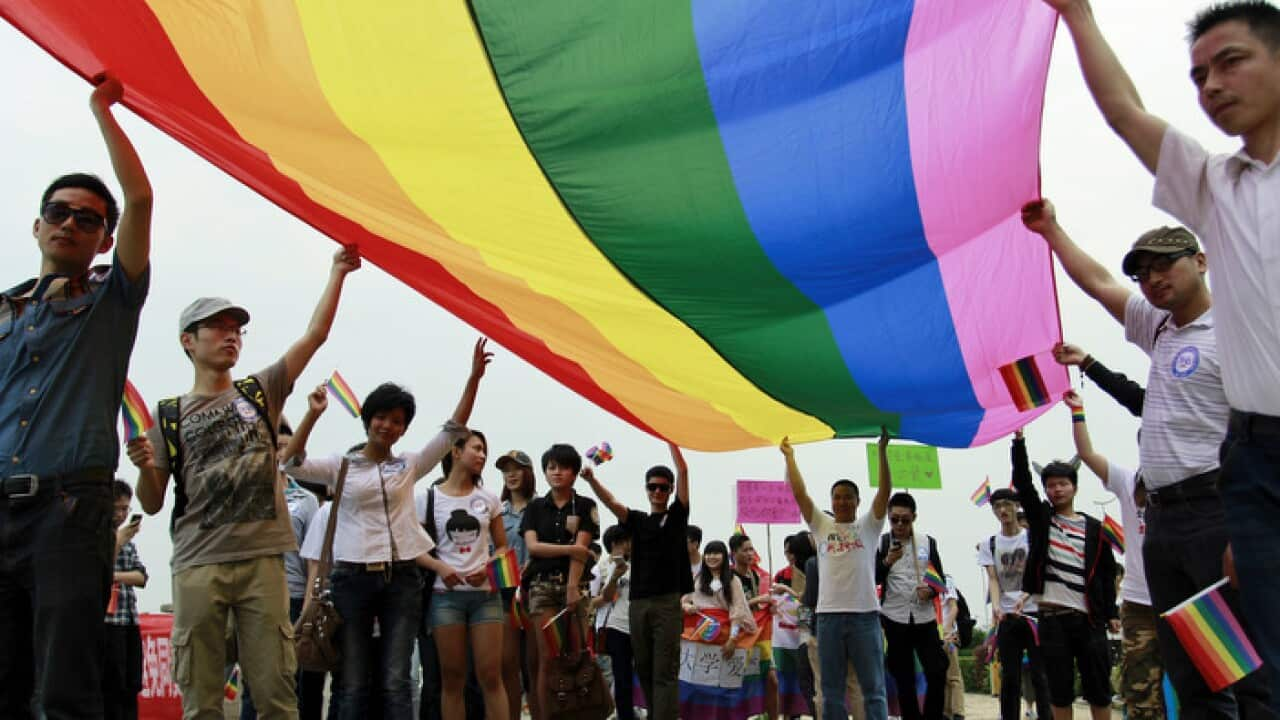Last year, Wang Lin discovered her marriage was based on a lie.
For ten years, her husband had hid his true sexuality.
Wang Lin -- not her real name -- is a tongqi, (tong-CHEE) a straight woman who unknowingly married a gay man.
"Over the years, my suspicion grew. When it was confirmed, I was stunned and furious. I felt betrayed."
A report by Qingdao (ching-DOW) University estimates there are 16 million such women in China.
It says many suffer mental illness, some suffer domestic violence.
Wang Lin says she feels the gay husbands involved need to be held accountable.
"In my husband's situation, or most gay people, if they admit they're gay, I believe any normal woman wouldn't choose to marry them. They think society requires them to marry so they have the right."
Getting married and having children is considered a must in traditional Chinese culture.
Same-sex marriage is illegal, and children born out of wedlock are denied access to services such as education and hospitals.
Many in China's estimated gay population of 40 million hide it from their parents.
Xiao de Lan (sh'ow deh-LAN) campaigns to raise awareness of the tongqi issue.
She says marrying to appease one's parents has left a generation of anguished tongqi.
"Society doesn't see us. So I think I have to stand up to let society know we exist, because there are so many of us."
She has taken to the streets of her city Quanzhou, (quang-ZHO)in China's south, in a wedding dress to raise awareness.
A former tongqi herself, Xiao De Lan says she did not see the signs early in her marriage, which she blames on inadequate sex education in China.
"Two months into the marriage, my husband asked, 'Don't you think I'm different to others?' I asked, 'Different how?' He said, 'Don't you know I'm gay?' My brain went blank. I had no idea what he was talking about. Back then, I didn't know what being gay meant."
But lesbian couple Yi Zh (ee JER) and Ou Xiaobai (oh sh'ow-BUY) say they have found a solution to the tongqi problem.
They are set to launch a smartphone app which facilitates marriages of convenience, or so-called "cooperative marriages," between gay men and lesbians.
The couple say it removes societal and family pressure.
Ou Xiaobai is in a cooperative marriage, and her girlfriend Yi Zhi was a bridesmaid at the ceremony.
(Yi:) "I did her make-up, and her mother was so happy."
(Ou:) "If your family is happy, then that's what counts."
Yi Zhi revealed to her mother that she was a lesbian as a teenager, something she does not advise others to do.
From my personal experience, the pressure and pain your parents suffer are immeasurable. Whether you choose to come out or a cooperative marriage, it's not the ultimate goal. It just makes our lives happier."
Gay-rights advocate Wei Xiaogang (way sh'ow-GAHNG) says attitudes in China need to change, with less emphasis on marriage and children and more acceptance of div—erse relationships.
He is director of the Beijing Gender Health Education Institute.
"If you solely charge only gay men for creating the tongqi problem, it's not fair. Why is it such an important issue in gender and sexuality? What about other problems? I think we need to really think what makes us lie in marriage."
Wang Lin says now she is getting a divorce.
She says, although she has her regrets, her young son is her main concern.
"I can't go back in time and choose another family. I don't have that chance."
She says she hopes, through telling her story, his generation will be more free to choose the life they really want, married or not.




